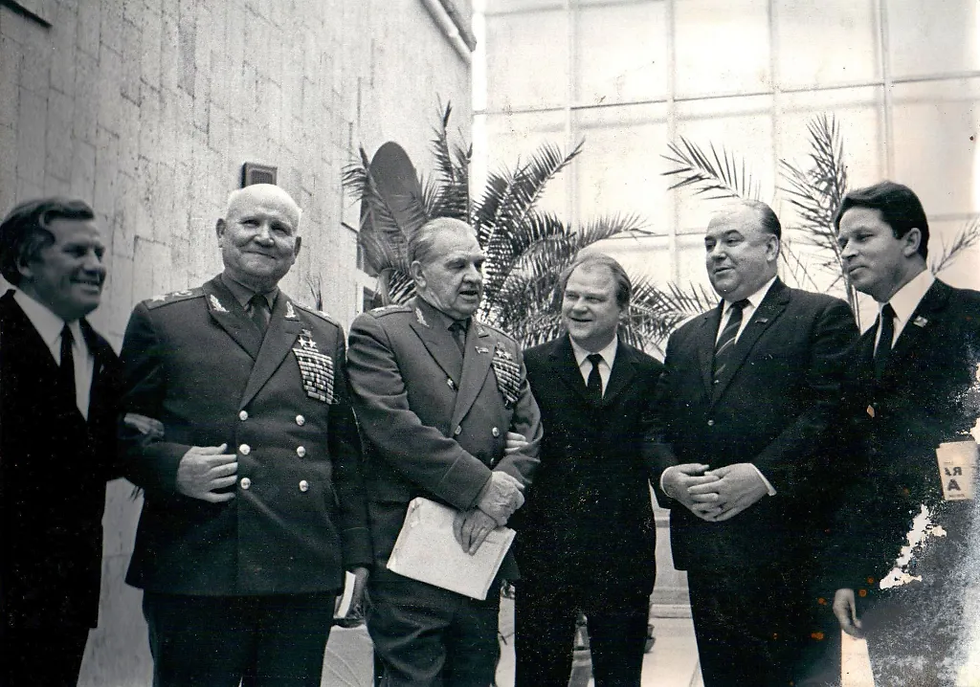
Pictured: S. K. Tsvigun (second from right), Marshal of the Soviet Union V. I. Chuikov (third from left), Marshal of the Soviet Union I. S. Konev (second from left), First Secretary of the Komsomol Central Committee E. M. composer T. N. Khrennikov (third from right) at the session of the Supreme Soviet of the USSR. Moscow, 1970s The author of the photo is S. Gurary, a photojournalist for the Trud newspaper. Tsvigun family archive
Over the past three years, I have thoroughly enjoyed having the unique opportunity to research the life and work of Marshal Chuikov and his ascension to the highest military rank in the former Soviet Union. A recent conversation with a fellow researcher prompted the question, “What if?” What if there had been no Great Patriotic War, no massive victory over the Nazis and their allies? What kind of life might Vasily Ivanovich have lived, and what career would he have pursued?
Based on the various leadership qualities and personality traits Marshal Chuikov exhibited during his lifetime and oft written about in this blog, perhaps he would have pursued a career as an effective politician. Having heard Lenin speak in public in 1918, Chuikov was greatly inspired and joined the Communist Party at a young age. Even after his official retirement in 1972, Vasily Ivanovich remained highly involved in the Central Committee of the Communist Party, continuing to serve as a Deputy of the Supreme Soviet (a position he held since 1946). Moreover, he often served as a Delegate from his region, even in his final year of life (1981) for the 26th Congress of the 11th Convocation.
While numerous historical accounts focus on Marshal Chuikov's military posts, especially his leadership of the 62nd-8th Guards Army during the Battle for Stalingrad and the capture of Berlin, his education at Frunze Military Academy in the early 1920s also prepared him for a diplomatic career. He spent several years abroad in China and, after WW2, in Germany in the roles of military governor of Thuringia as well as the Chief of the Soviet Control Commission of the German Democratic Republic. Serving in such a capacity in the GDR allowed Chuikov to interact with and entertain political leaders from the Western Allies and beyond.
Later on, when former US President Dwight Eisenhower (1969) and French leader Charles de Gaulle (1970) passed away, Marshal Chuikov was selected to represent the Soviet Union in a delegation of leaders to pay tribute and express the nation's condolences. With years of experience in interfacing with other world leaders, he was an outstanding choice for these diplomatic trips during the Cold War.
